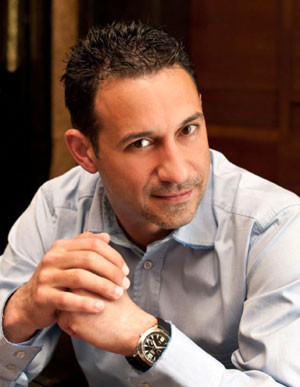The 105 Minutes Sofia – History of the City documentary tells the story of key events that have marked the 8-millenia-long history of the capital. This journey back in time outlines archaeological discoveries, smart urban planning decisions, masterpieces of architecture and art, scientific achievements – but mostly the persons that stand behind them.
The movie consists of the different episodes of the 5 Minutes Sofia documentary series that Kamen Vo Studio launched 7 years ago with the idea to present remarkable moments, legends and artifacts from the history and culture of the ancient city. “The 5-minute-long episodes look like a visit to a watch making shop with any detail visible, while the full movie is like a satellite photo – it gets the whole picture,” director Kamen Vodenicharov says. His team has opted for the so-called docufiction means of expression – a combination of documentary tools and actors, in order for the faces of the historical personalities to be presented as living with the help of animation, documentary frames and pictures – in order for the movie to become artistic.
The opening scene reveals the oldest artifact, dated back to 6,000 BC – an antique settlement beneath what’s today the Slatina neighborhood, while the closing scene shows the subway, streets and everything that has being built around us. There are a total of 77 actors’ roles in the film – Roman Empress and patron of Serdica Julia Domna, Khan Krum who annexed the city within the borders of Bulgaria; Khan Omurtag who was responsible for the earliest constructions in the First Bulgarian Empire; Apostle of Freedom Vassil Levski etc.
 “It is always a risk to try to portrait Levski on screen, but his path in life ended up in Sofia, where he had established his revolutionary committee at the Dragalevski Monastery and was later on sentenced to death at the konak,” the director says and adds that young actor Sevar Ivanov played Levski, as he really resembled the historical character. Kamen Vodenicharov recalls this remarkable fact from the period of the Ottoman rule:
“It is always a risk to try to portrait Levski on screen, but his path in life ended up in Sofia, where he had established his revolutionary committee at the Dragalevski Monastery and was later on sentenced to death at the konak,” the director says and adds that young actor Sevar Ivanov played Levski, as he really resembled the historical character. Kamen Vodenicharov recalls this remarkable fact from the period of the Ottoman rule:
“During the Bulgarian Renaissance in the 19th century our ancestors paid serious attention to education – the first maiden’s school was established by Grandma Nedelya right here, in Sofia – at the Svetlina community center,” the director underlines. “I.e. the striving towards education and Europe’s cultural values was planted by schools and the church very early in our history, which was a joint act of many people.”
The film is also about the latest history of the capital – on the dreams for justice and the illusions after the fall of the Berlin Wall. It is also far away from the recent nationalist deviations, Kamen Vodenicharov says and adds:
“The nationalistic nuance of that pseudo-patriotism that has being poured over us recently is definitely something that one cannot see in this movie. On the contrary, we tried to show the real builders of modern Bulgaria. These are people who had studied abroad and who had invested their talent in order to develop the city to that state which was called ‘the little Vienna’. On the eve of WWII the place was a small architectural wonder. However, due to a wrong decision it was bombed and destroyed. Later on it went into a completely different direction and its destiny was tough. At the same time this is the inevitable historical move – the city has been constantly moving up and down along some spiral: at one point economy is blossoming and people have a good life, while in the next moment everything collapses. Hence our message – to see the faces of the people around us, since this is our Sofia, our moment that we live in – here and now. Let’s remember that this cycle of upsurge and collapse has been going on and let’s remain strong – in both good and bad times,” director Kamen Vodenicharov says in conclusion.
English version: Zhivko Stanchev
All necessary measures have been taken to protect the exhibits of the "Ancient Thrace and the Classical World: Treasures from Bulgaria, Romania and Greece" exhibition in Los Angeles from the raging fires in the area, reported BTA. The exhibition,..
Bulgaria's Consul General in New York Angel Angelov has taken part in an online discussion organized by an educational platform on Holocaust issues and dedicated to the saving of Bulgarian Jews in the Second World War, BTA reports. A special guest..
An exhibition titled "PICASSO: Graphics from the National Gallery Collection " will open at 18:00 pm this evening at Kvadrat 500 in Sofia. The National Gallery's collection includes twenty-one graphic works by Picasso, thematically connected to his..
All necessary measures have been taken to protect the exhibits of the "Ancient Thrace and the Classical World: Treasures from Bulgaria, Romania and..
An exhibition titled "PICASSO: Graphics from the National Gallery Collection " will open at 18:00 pm this evening at Kvadrat 500 in Sofia. The..
Bulgaria's Consul General in New York Angel Angelov has taken part in an online discussion organized by an educational platform on Holocaust issues and..

+359 2 9336 661
